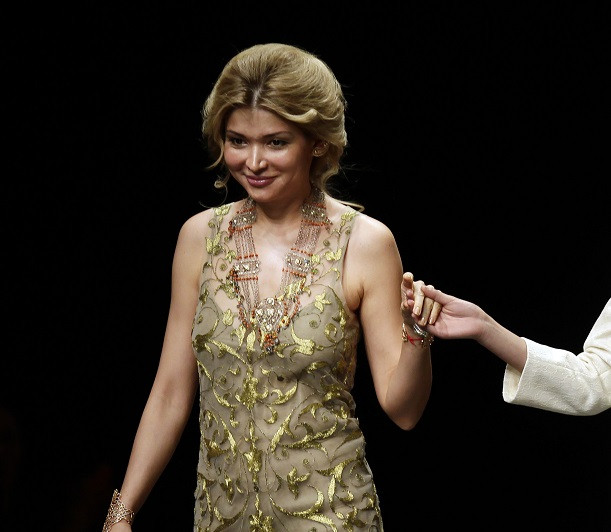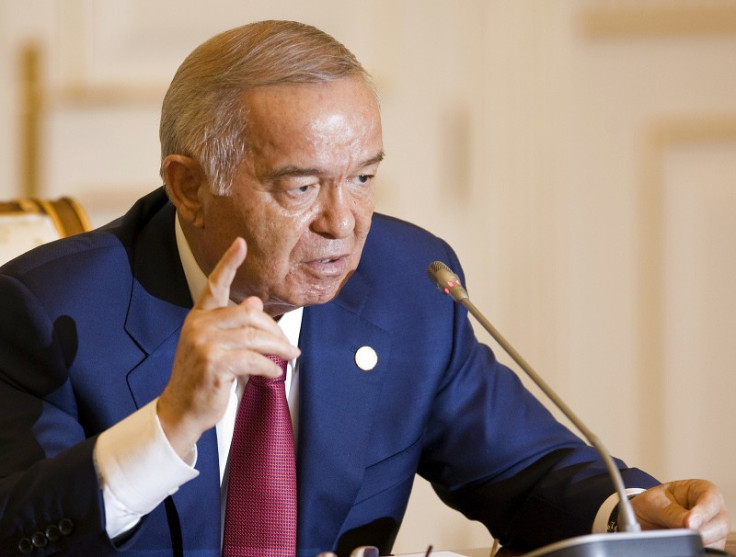Gulnara Karimova: Uzbekistan President's Daughter's Bloody Fall From Grace

A letter smuggled to the BBC has revealed the extent of Gulnara Karimova's fall from grace, as the daughter of the Uzbekistan president and a successful businesswoman, to an outspoken critic of the country's repressive regime.
The letter, which was sent to the BBC from Uzbekistan, claims Karimova has suffered beatings as a result of allegedly being the most hated person in the country. She wrote: "I am under severe psychological pressure, I have been beaten, you can count bruises on my arms."
She also describes the daily threats she is reportedly receiving, as well as her life under house arrest and constant surveillance by officials. The sender of the letter remains unknown, yet the anonymous person described themselves as someone attempting to "restore justice".
The BBC have stated the "convoluted style and neat Russian handwriting suggests that the author is no dissident, but Gulnara Karimova".

As the daughter of the Uzbekistan president, Islam Karimov, Karimova was one of the most powerful people in the country. She is a diplomat, professor, a businesswoman and a fashion guru, as well as gaining fame as the Uzbek pop sensation Googoosha.
Last year, she faced several controversies - which brought her glamorous life to a standstill. Karimova became an advocate against the repressive apparatus of her father's state, whose public stance against the Uzbek government has been broadcast on social media sites.
In particular, Karimova has openly condemned her father's top security man, Rustam Innoyatov, a key figure in the president's regime who she accused of trying to seize power.
In December 2010, dispatches from the US Embassy in Uzbekistan exposed on the Wikileaks website described the ex-Soviet country as "a nightmarish world of rampant corruption, organised crime, forced labour in the cotton fields and torture". The site also shifted focus to Karimova, the "glamorous and highly controversial" daughter of the president who is the "single most hated person in the country".
According to the Embassy, Karimova had acquired interests in the crude oil contracts of Zeromax, a Swiss-based company believed to be under the control of the Karimov empire - in a "deal with a local mafia boss". The Wikileaks investigation also alleged that she has obtained shares in the Coca-Cola bottling franchise after it had been subjected to a tax investigation.
Earlier this month, it was revealed that Swedish authorities are investigating Karimova on suspicion of money laundering. She has been named as a suspect in a Swedish telecommunications bribery case, involving the Nordic company TeliaSonera.
Gunnar Stetler, chief prosecutor at the Swedish National Anticorruption Unit, told RFE/RL's Uzbek Service that Karimova is suspected of taking bribes to let the firm enter the Uzbek market.
Throughout the scandals, Karimova has been active on Twitter - giving details of her dispute with her family and the subsequent closure of her businesses and television stations as a result, along with arrests of her supporters. Since mid-February, however, her account has remained silent.
While her patrons support her exposure of the brutal and repressive regime of the Uzbek government and police, rights activists have criticised that Karimova is the so-called face of the revolt.
Andrew Stroehlein, of Human Rights Watch, told the Guardian that he carried out strange exchanges with Karimova, trying to persuade her to launch investigations into issues such as the 2005 Andijan massacre - when Karimov's security forces allegedly shot hundreds of unarmed protested dead.
He said: "Even when she was Uzbekistan's representative to the UN in Geneva, where the international body's human rights council is located, she repeatedly refused to talk about these things. Now that she's fallen out of favour with some part of the regime, now that a few people close to her have allegedly been roughed up by the same forces she backed and spoke for for years – now she's talking about abuses and wants to be taken seriously?"
© Copyright IBTimes 2025. All rights reserved.






















